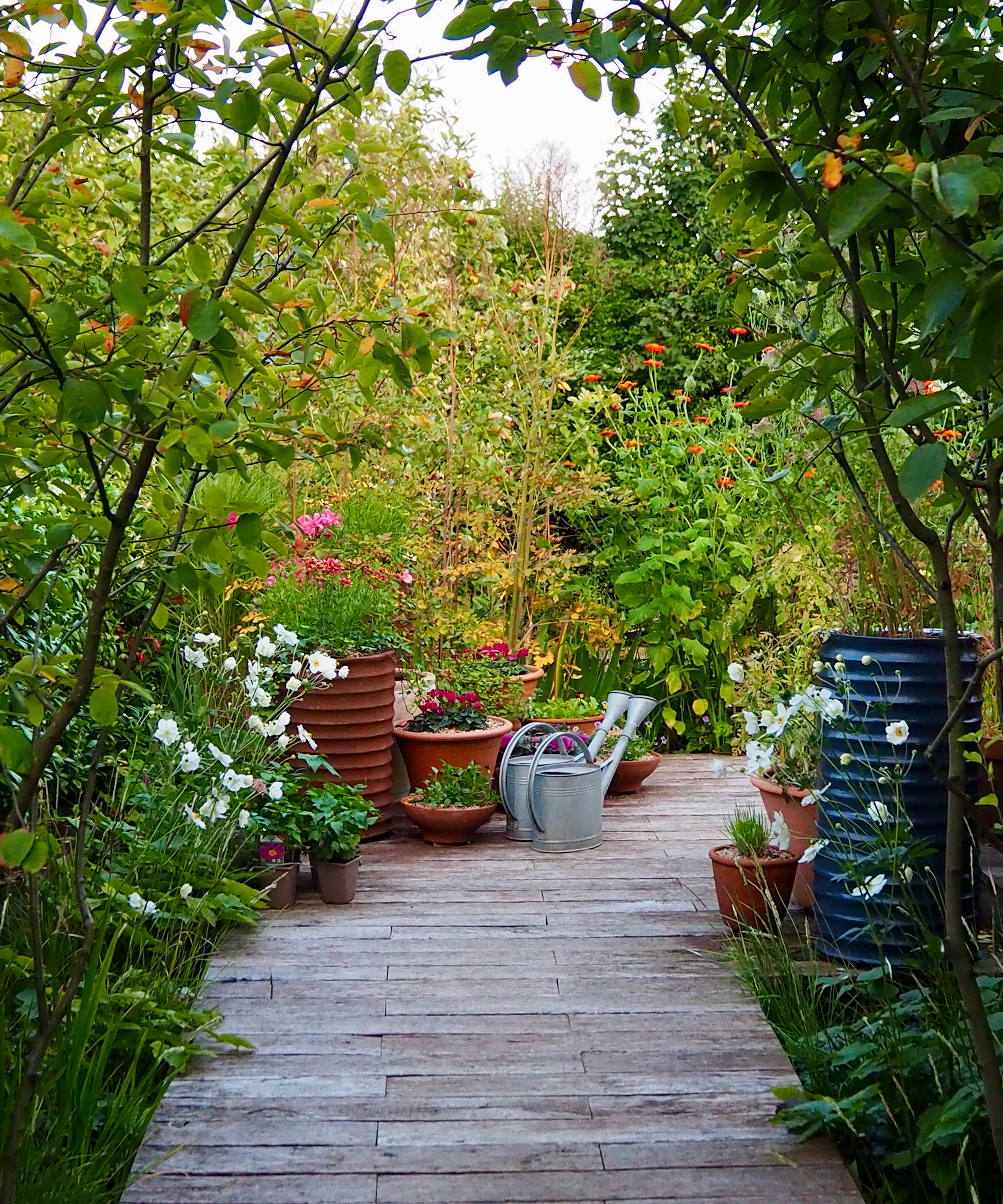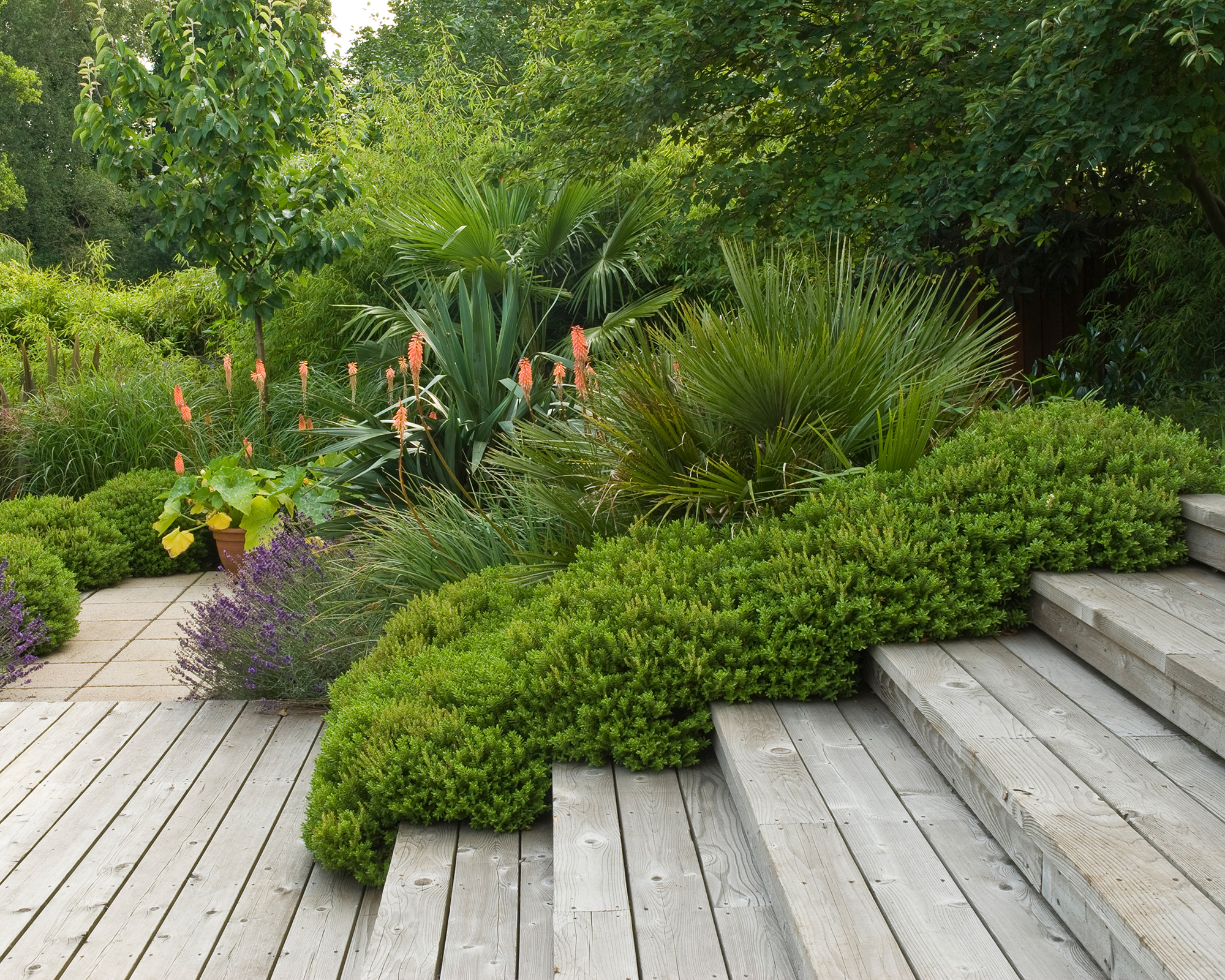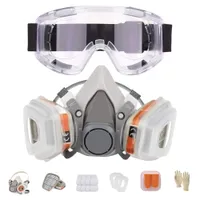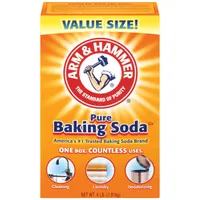How to remove bad odors from your outdoor decking – and prevent them from coming back
7 steps experts recommend to banish odors from your deck and routines to keep your deck looking and smelling fresh


Design expertise in your inbox – from inspiring decorating ideas and beautiful celebrity homes to practical gardening advice and shopping round-ups.
You are now subscribed
Your newsletter sign-up was successful
Want to add more newsletters?
Your outdoor decking faces the elements year-round, so it's no surprise that unpleasant odors can develop over time. Cleaning a deck to lift these odors is one of the key outdoor cleaning tasks that need to be completed before summer arrives so you can enjoy relaxing and hosting in this space all season long.
Bad odors on a deck can stem from various sources, including mold, mildew, trapped moisture, spills, and accumulated debris. Not only do these odors make your outdoor decking less inviting, but they can also indicate deeper issues that require attention.
So, if you're checking decking for winter damage and notice an unusual odor, it's essential to address this promptly. Our experts have recommended the following cleaning tips, to help you to maintain a pleasant outdoor space and preserve your decking by preventing any underlying issues from escalating.
How to remove bad odors from your outdoor decking
'Regular maintenance is crucial to keeping your deck odor-free. This includes sweeping debris, washing the deck with a gentle soap solution, and occasional deep cleaning using specially formulated deck cleaners,' says Steve Sylva, owner of the landscaping company Steve’s Services. 'This routine not only keeps the deck visually appealing but also helps to prevent odor buildup by removing the surface dirt and debris that can harbor fungus and mildew, leading to odors before they can penetrate deeper into the wood grains.'
However, for odors that aren't lifted with this, often those stemming from organic decay or mold, a more robust solution is often necessary.
1. Identify the source of the odor

The first step is to find what’s causing the smell because the treatment will vary based on the cause. Gavin Warwick, founder of Boise Landscaping Company explains how to do this:
Start by employing your sense of smell. Walk around the deck and try to locate where the odor is strongest.
Design expertise in your inbox – from inspiring decorating ideas and beautiful celebrity homes to practical gardening advice and shopping round-ups.
Next, inspect the deck for any visible signs of mold, mildew, or algae, especially in areas that are shaded and retain moisture. Also, check for stains that could indicate spilled food, drinks, or pet accidents. These areas may appear darker or discolored.
If you’re still having a hard time locating the source, check these common culprits:
- Under potted plants: Moisture can accumulate here, making it a hot spot for mold growth.
- Between boards: Debris and moisture can get trapped between deck boards, fostering mold and mildew.
- Near cooking areas: If you’ve got a barbecue or outdoor kitchen on your deck, food spills and grease can also accumulate and cause odors.
- Furniture and rugs: Moisture and debris can get trapped under outdoor rugs and furniture, especially if not moved or cleaned regularly.
If you still can’t find the source of the odor, Gavin Warwick suggests it could be moisture. Use a wood moisture meter to test for elevated moisture levels in the wood that may indicate mold growth.
If this is causing the odor, you will need to take more drastic measures than just cleaning it to remove mold from a wood deck, such as replacing soiled wooden boards.
Reusable Face Cover Set | $19.99 from Amazon
Wear the appropriate safety equipment like gloves, goggles, and masks, especially if you are dealing with harmful substances like mold.
2. Clear all debris

Start by giving your deck a thorough cleaning. Use a mild detergent or specialized deck cleaner, such as this TIMBERTECH Composite DeckCleaner, from Amazon, and scrub the surface with a stiff brush to remove dirt, grime, and organic buildup. Pay special attention to crevices and corners where odors may linger.
3. Sprinkle baking soda overnight

To neutralize odors baking soda can be effective for absorbing odors and drying out any lingering moisture.
Spread a generous amount of baking soda evenly over the deck's surface, focusing particularly on areas with the strongest odors. Allow the baking soda to sit overnight to give it ample time to penetrate the pores of the wood. This will absorb any lingering odors and help dry out the moisture that may be contributing to the problem. The next day, rinse off the baking soda.
Arm & Hammer Pure Baking Soda, 4 lb
$2.73 at Walmart
4. Clean with vinegar

When planning decking steps, ensure they are equal distance apart for both safety and aesthetic reasons
For more stubborn odors, applying a mixture of white vinegar and water can help. This natural solution kills off mold spores and neutralizes odors without damaging the wood.
You can scrub the baking soda with a broom or brush and clean with vinegar and water. With its natural disinfectant properties, vinegar can further help to eliminate odors while cleaning the deck's surface of any residue. Then, rinse the deck using a power washer or a hose.
The first layer of baking soda helps trap the odorous particles within its structure. Then, the vinegar adds another level of deodorizing by neutralizing the odor-causing compounds trapped by the baking soda. Whether the odor-causing compounds were acidic or alkaline, the neutralization reaction should eliminate them regardless.
'Both of these are safe to use on your wooden decking, and they're also safe for your landscaping and plants that may be growing in the area (as long as you're not using too much or directly exposing them),' says Ryan Farley, CEO of LawnStarter.
5. Use a homemade enzymatic cleaner

'For immediate odor issues, especially those arising from organic decay such as leaves or food spills, a homemade enzymatic cleaner can be particularly effective,' says Sal Musto, the owner of Steve’s Services landscape company.
'This cleaner is made by mixing sugar, lemon, and water, and letting it ferment for a few weeks. The natural enzymes help break down organic matter, effectively removing the source of the odor.'
These are especially useful when odors are due to pet urine or decomposing natural debris.
6. Try oxygen bleach for the most stubborn odors

An effective cleaning mixture that works well, particularly against organic decay, is a solution of oxygen bleach diluted with water. This solution is safe for both the environment and the deck materials, lifting stains and odors without harsh chemicals.
'For the toughest cases, such as deep-set mold or lingering odors, we use a product like OxiClean Odor Blasters Versatile Odor and Stain Remover Powder, from Amazon,' says the owner of McLeod Landscaping Inc. 'This non-toxic oxygen bleach is safe for colored surfaces but powerful against stains and odors. Not only does it address the odor but also brightens the decking, making it look refreshed.'
- Apply the oxygen bleach to your deck according to the manufacturer's instructions – this will typically be one cup of oxygen bleach per gallon of water. Stir this until it is completely dissolved.
- Pour this onto the affected area of your deck and scrub it evenly over the surface using a scrub brush or a mop.
- Let the solution sit for 10-15 minutes to penetrate the wood and break down organic matter causing odors.
- Then, use a scrub brush to agitate the deck's surface and lift dirt, grime, and other odor-causing substances.
- Rinse the deck with clean water using a hose or pressure washer, and allow it to dry fully before using it again.
7. Sealing and drainage

Once the deck is clean and dry, apply a sealer. This will help prevent future odors by blocking moisture absorption, as well as protecting the wood from the elements. You should do this at least once every two to three years.
'Additionally, it’s essential to ensure that your decking has proper drainage and air circulation,' says Steve Schumacher, owner-operator of Boston Landscape Co. 'Poor drainage can lead to water accumulation, exacerbating mold growth and odor issues. Ensuring that your deck is slightly elevated or has adequate spacing for airflow can prevent moisture retention.'
FAQs
How often should you wash your decking?
It’s important to clean your deck regularly and clear up any spills immediately to prevent the absorption of liquids and residues that can lead to bad odors. A well-maintained deck seldom has issues with persistent bad smells.
We also recommend a bi-annual deep cleaning regimen using a solution of water and oxygen bleach, which does an excellent job of breaking down odor-causing residues without damaging the deck material.
If bad odors persist, it’s best to call in a professional. Sometimes, the problem lies deeper than the surface, such as deep-set mold and mildew or rot and decay. A professional can help diagnose and solve these more persistent issues.

Lola Houlton is a news writer for Homes & Gardens. She has been writing content for Future PLC for the past six years, in particular Homes & Gardens, Real Homes and GardeningEtc. She writes on a broad range of subjects, including practical household advice, recipe articles, and product reviews, working closely with experts in their fields to cover everything from heating to home organization through to house plants. Lola is a graduate, who completed her degree in Psychology at the University of Sussex. She has also spent some time working at the BBC.


